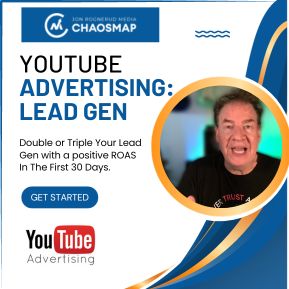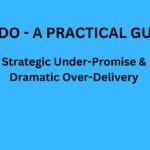Search engine optimization can be a positive channel for any ambitious business owner to achieve an unfair advantage ahead of their competitors in Google.
This post was created to help new website owners understand the beginning elements of successful SEO campaign building.
The reason why many people have problems achieving specific rankings is that they do not what Google wants and what to do when. They hear “content & links”, but there are so many changes, search filters and penalties being applied almost daily.
Furthermore, there is an underground community that is dedicated to “Black Hat SEO”. It can be VERY EFFECTIVE; but the results are short lived and it’s highly risky for good business. It’s like fast food – it tastes good now, but will leave that “why did I eat that?” feeling afterwards. Here are some great tips to give you long-lasting results on your website.
#1 – Creating “Shareable” Content is Very Important
According to Moz, a URL’s number of “Google +1’s” for a webpage plays a sizable part in determining its rankings. Google’s algorithm is becoming less of a mathematical problem and more of a result of human interaction. Therefore, when you create content, you want to make sure that it has these three elements:
- Catchy
- Easy to read
- Informative/Relevant
Try to think outside the box. Instead of just making a “How-To” article, create an interesting graphic, audio and a video version to go along with it. Then, distribute those assets into relevant channels. (iTunes, YouTube, Pinterest for example).
#2 – How Your Traffic Interacts with Your Website Does Matter
In Moz’s 2013 ranking factors, user experience does play a key role. User experience with your website includes things such as:
- Page loading speed
- Bounce Rate (How quickly are users leaving your website)
If users are going to your website, and hitting the back button within seconds – there is evidence that Google will factor this into their rankings for your website.
Create a website that informs and sells.
#3 – Consider Domain Keywords But Balance With Brand
You may be thinking, “What should my domain name be?” Just several years ago, many search engine optimization experts were making keyword “sniper sites” in which a domain name was purchased and a mini-site was created to focus on that keyword. This lead to many SEOs purchasing hundreds of domain names, loading them up with “basic” content, so that they could rank easily for many different keywords. They would also start to link these sites together and after Google discovered these link networks, they would be penalized or filtered as “low-value”.
Google has come after that strategy and it’s not effective now. If you are looking to be creative with domain names, a great tool to use is BustAName.com – this can help you find a catchy brandable name, instead of one for SEO purposes.
#4 – How Important is Domain Age?
Many people who are just getting into the SEO game believe that they are at a major disadvantage because their domain age isn’t that old. However, if Google sees that the quality of your website is high – that will override domain age. If your domain is wet behind the ears – just focus on on-page factors such as content quality, loading speed, making content easily shareable, etc. If you are offering value and creating relationships – everything tends to work in your favor.
Matt Cutts (head of webspam at Google) on Domain Age: “The difference between a domain that’s six months old verses one year old is really not that big at all.”
#5 – Domain Registration
If a business owner plans on creating a successful business (why not?) – then it is important that they make a significant commitment. If you can make at least a 5 year commitment in terms of domain registration or more, it is likely you will receive some extra brownie points. Clearly, starting a business is more than paying your dues via a domain name, so consider getting a mentor or coach to help you on that side as well.
A Google Patent of 2005 states: “Valuable (legitimate) domains are often paid for several years in advance, while doorway (illegitimate) domains rarely are used for more than one year.”
Obviously, Google looks at this data. Even though the significance of it is unknown, consider it.
#6 – Private Registration
Some websites like Namecheap and GoDaddy offer private registration. Why is this ‘bad practice’? If you are a webmaster who is using multiple websites for online malpractice – then there’s a chance that you will want to hide your registration identity. Be completely transparent and decline the option to stay hidden. If you do not want your addressed displayed on WhoIs – then get a P.O Box.
#7 – LSI, Keyword Density, Content Length
Let’s go over these three terms with regards to content quality and why they are significant to search engines.
- Latent Semantic Indexing (LSI) – This is not something should be over-analyzing; however, it is important to know. Based on synonymous words or phrases – these can increase your website’s perceived quality and you are less likely to be caught for spamming and/or over-optimization. A natural approach and inclusion of related terms is good practice.
- Keyword Density – While this may not be as important as it once was, a natural inclusing of keywords and phrases helps. Review competitor sites and do a baseline analysis for your market. Apply as necessary.
- Content Length – The average length for content on the top of Google was about 2,000 words per webpage. Longer content tends to get shared more.
Keep these factors in mind when you are starting your new SEO campaigns. Make sure that your website is search engine friendly, doesn’t contain any spider blocks, has a good architecture and provides value – so that people will share and link to it. Authority and trust building is just as important online as off.
Get started today!
Jon Rognerud and Chaosmap work with Fortune 500 companies, associations and entrepreneurs to create digital traffic strategies that scale up members, customers, leads and sales with profitable returns. Mr. Rognerud wrote a best-selling book (Buy On Amazon), “The Ultimate Guide To Optimizing Your Website” (Entrepreneur). Connect directly here.







